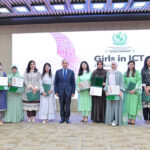UNITED NATIONS, Apr 17 (APP):Prominent speakers at a special ministerial meeting of the UN Economic and Social Council (ECOSOC), held on Friday under Pakistan’s presidency, called for fair, transparent and equitable access to and distribution of coronavirus vaccines to help developing countries, especially small island states, to combat the pandemic.
“Vaccines offer our best hope in addressing this pandemic and overcoming it,” the ECOSOC President, Pakistani Ambassador Munir Akram, told the virtual meeting which took place in virtual format with the theme “A Vaccine for Al”.
The day-long event brought together top officials from the UN, government, business, the scientific community and civil society, who explored ways to guarantee equal access to the vaccine as a global public good, and to strengthen countries’ readiness for its distribution, as they engaged in two panel discussions addressing the related problems.
“I would like to underline that this debate indicated the enormity of the challenge and the threat that we are facing,” the Ambassador Akram said in his closing remarks to the meeting.
“It has to be collective action, and it has to be a universal action,” the ECOSOC chief said, while stressing the need to work with the international organizations that are leading the fight against the virus, such as WHO and UNICEF.
The ECOSOC chief called for boosting production, addressing intellectual property issues, supporting weak health systems in developing countries, removing export restrictions – and importantly – funding the WHO’s ACT Accelerator and COVAX facility.
Decisive steps towards universal access is a prerequisite for economic recovery, he said
“We need investment in the production facilities,” Ambassador Akram said, pointing out that there were so many in the developing world capable of producing vaccines, and make them available not only to their own people but to others as well.
Developing countries need to build logistics, storage, and distribution capacities, he said. “And we need to promote resilient health systems to guard against future pandemics.”
“The issue is now one of political will and the political will has to come from those who have the capacity to contribute and to act,” the ECOSOC president said. In this regard, he appreciated the steps that have been taken, but much larger action was required.
“This is an acid test for humanity,” Ambassador Akram said, adding, “If we fail in this, we would fail in meeting other challenges — like the climate crisis.”
In conclusion, he called for making the slogan of ‘No one is safe, until all of us are safe’ a reality.
The Director-General of the World Health Organization (WHO), Tedros Adhanom Ghebreyesu said the unequal distribution of vaccines is not only a moral outrage, but economically and epidemiologically self-defeating.
“Vaccine equity is the challenge of our time”, he told the gathering. “And we are failing.”
Driving that point home, Tedros said that of the 832 million vaccine doses administered, 82 per cent have gone to high or upper middle-income countries, while only 0.2 per cent have been sent to their low-income peers.
In high-income countries alone, one in four people have received a vaccine, a ratio that drops precipitously to 1 in 500 in poorer countries.
Rapidly spreading variants, the inconsistent use and premature easing of public health measures, fatigue with social restrictions and the ‘dramatic’ inequity in vaccine coverage; all have led to an alarming spike in new cases and deaths, he said.
“This is a time for partnership, not patronage”, the WHO chief stressed. “We have the tools to end this pandemic.” The Access to COVID-19 Tools Accelerator, created by WHO and its partners, along with the COVAX Facility, can prevent mistakes of the past – when the world 40 years ago was slow to deploy lifesaving antiretrovirals to poor countries during the HIV and AIDS crisis.
Today, he said that while COVAX has distributed 40 million doses to 100 countries, this is nowhere near enough. WHO had expected to distribute 100 million doses by now. Some countries have received nothing, none have received enough – and some are not receiving second-round allocation on time. “The problem is not getting vaccines out of COVAX,” he assured. “The problem is getting them in.”
WHO is working with the Gavi, the Vaccine Alliance and the Coalition for Epidemic Preparedness Innovations to ramp up production and supply, he said. A COVAX manufacturing task force has been formed, and promisingly, a New Partnership for African Manufacturing will be formed by the African Union.
Tedros called on countries with enough vaccines to cover their populations ‘many times over’ to make immediate donations to COVAX. More broadly, it is vital to explore every option for boosting production – including voluntary licenses, technology pools and the waver of certain intellectual property provisions and to invest in local vaccine manufacturing.
WHO will continue to provide technical assistance and add manufacturing bases across Africa, Asia and Latin America, Tedros said.
Never in its 75-year history has the role of the United Nations been more important. “We cannot defeat this virus one country at a time,” he said. “We can only do it with a coordinated global effort, based on the principles of solidarity, equity and sharing.”
Ngozi Okonjo-Iweala, Director General of the World Trade Organization (WTO), called such disparities ‘morally unconscionable’. Addressing inequity is a task that confronts the world with daunting technical, logistical, policy and political hurdles.
However, they can be overcome in a practical, empirically informed manner. While she said the impulse to conserve supply is understandable, securing personal safety is not enough.”We must find a way to share”, she insisted.
A recent WTO vaccine equity event had some encouraging takeaways, she said, making clear that there is untapped potential in developing countries to ramp up production, and that resources are available to bankroll such investment. WTO members have reduced export restrictions from 109 in nearly 90 countries, to 51 in 62 countries, and with pragmatic engagement, she said they can find ways to bridge intellectual property rights concerns.
Volkan Bozkir, President of the General Assembly, emphasized: “No topic is as relevant or pertinent to the world today as that of vaccines,” while acknowledging: “Our efforts have not been perfect.”
He stressed that “we must finish what we have started”, pressing Governments to recommit to the principles of human solidarity and cooperation. The progress made to date is the result of countries working with hundreds of companies and thousands of scientists — ‘multilateralism at its finest’ — he said.
With a view to ensuring the goal of ‘vaccines for all’, Bozkir said, Member States should extend resources to COVAX; invest in vaccine research, production and distribution; donate vaccines to countries in need; and tackle misinformation to ensure that everyone is educated on the benefits of inoculation.
“It is the job of the United Nations and its Member States to act on these demands,” he stressed.





